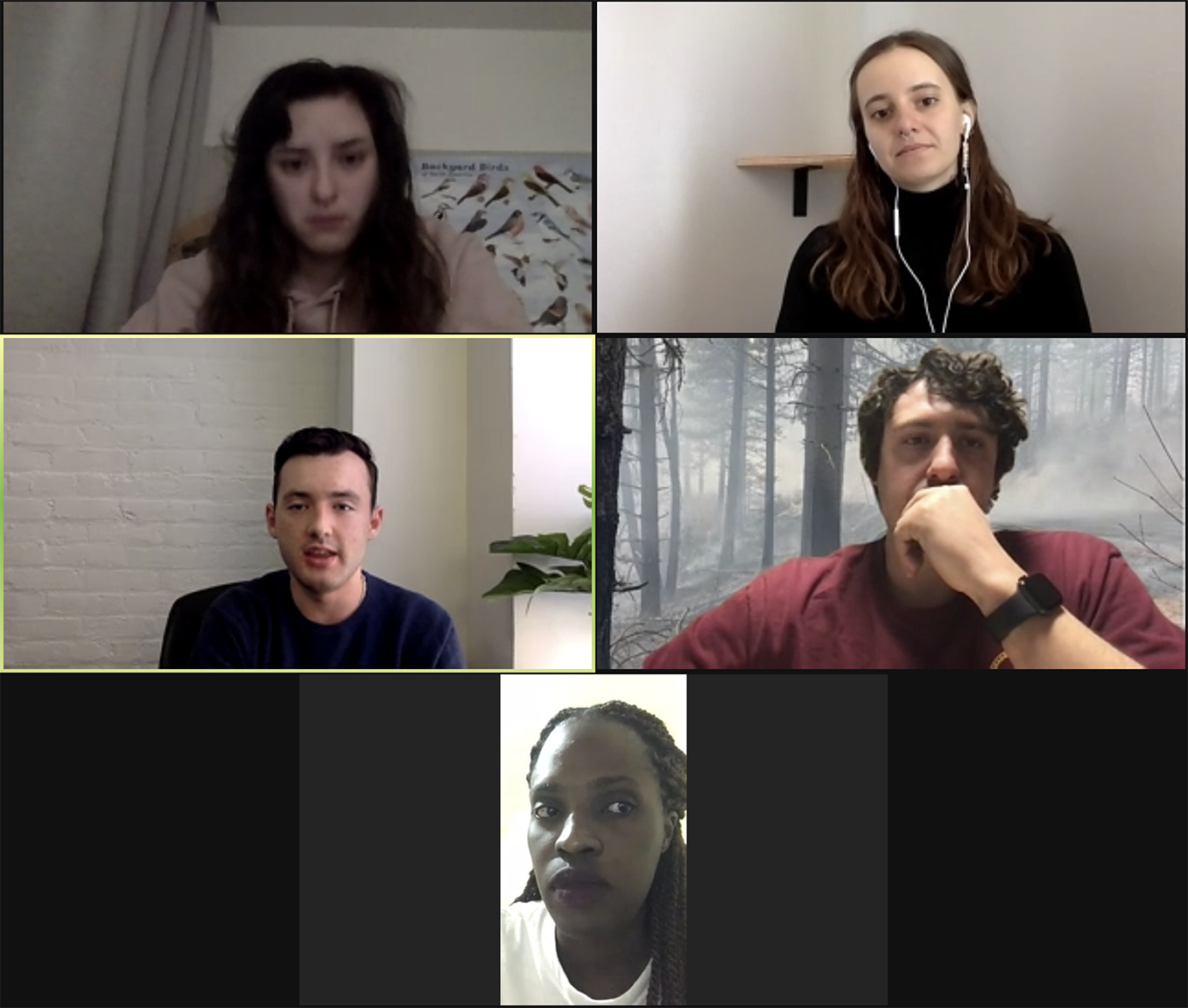CMC students pursuing environmentally focused professions learned some encouraging news at the recent Green Careers Conference, as alumni shared insights from their own experiences in policy, advocacy, entrepreneurship, and green consulting and finance.
“We can’t hire fast enough,” said Katie Browning ’13 a consultant with Schneider Electric who specializes in corporate sustainability.
Browning has been most surprised by how fast the opportunities have grown since she graduated. “It was really hard to find a job straight out of college in the sustainability field,” she said. “And now we have so many clients asking for so much work that we’re obviously a little bit overwhelmed and really excited to have a new generation of folks come on.”
Browning was one of 16 CMC alumni who participated in the Roberts Environmental Center’s 8th Annual Green Careers Conference on March 4, 2022. Students received a broad perspective on what green careers look like from alumni working everywhere from law firms and consulting agencies, to the government and the United Nations.
“We’ve seen the GCC grow and evolve from our first conference eight years ago,” said Kristin Miller, assistant director of Roberts Environmental Center and sustainability coordinator. “We’re excited to be able to reach all 5C students to engage them with alumni in industry conversations and to inspire them to pursue careers in roles which incorporate sustainability. We had over 200 students attend, and there was a greater turnout from Pitzer, Scripps, and Pomona than we had ever experienced.”
The Policy panel was comprised of Sam Becker ’19, with the Environmental Defense Fund; Michelle Black ’04, with Chatten-Brown & Carstens LLP, a public interest-oriented law firm specializing in environmental and land use law; Isabelle Heilman ’13, with the U.S. Department of Energy; and Sami Murphy ’21, with the United Nations.
Panelists discussed how students can explore and gain experience in environmental work as undergraduates, and shared insights into their jobs and how they landed there.
One of the recommendations from each of the four panelists was to take full advantage of all the opportunities related to environmentalism that CMC provides. For instance, Murphy, who applies emerging technology to global security challenges in her work at the UN, was involved with the Roberts Environmental Center and EnviroLab Asia.
Of course, internships are another one of those opportunities. Becker had interned at EDF while at CMC and ended up there as a medium- and heavy-duty vehicle advocate after roles with the California Governor’s Office and Bernie Sanders’ 2020 presidential campaign.
Heilman, a programmatic project analyst at the Department of Energy in the sustainability Performance Division, suggested finding a topic or theme to focus on across your CMC experience as a way to build depth of knowledge and experience. She wrote about the agricultural sector in Mexico in a class, and that led to helping set up an internship in Mexico, which helped with her thesis. And after graduation, she returned to the organization she interned with to do research on a climate change project with a Fulbright grant.

The Green Consulting and Finance Panel included Taryn Akiyama ’14 with Climate Finance Advisors; Katie Browning ’13 with Schneider Electric; Clifton Yin ’07 with Inter City Fund; David Cherney ’02 with PA Consulting Group; and Madison Vorva (Pomona ’17) with Earthworm Foundation.
The discussion ranged from what a typical day is like for a consultant (hint: there is no typical day) to how the industry has grown and changed in recent years. All agreed this is a great time for the industry with plenty of opportunities for students and graduates.
Cherney emphasized how rapidly the industry is evolving. Over his 20 years in energy infrastructure investment, he has seen the demand shift from thermal powerplants and natural gas to solar and wind and then battery storage. Now, he said, his company is focusing on CCS (carbon capture and sequestration), green hydrogen, and electric vehicles.
“As long as you’re flexible and happy to take on new opportunities, you will do quite well,” he said, “particularly coming from the background we all come from, with this great liberal arts degree.”

